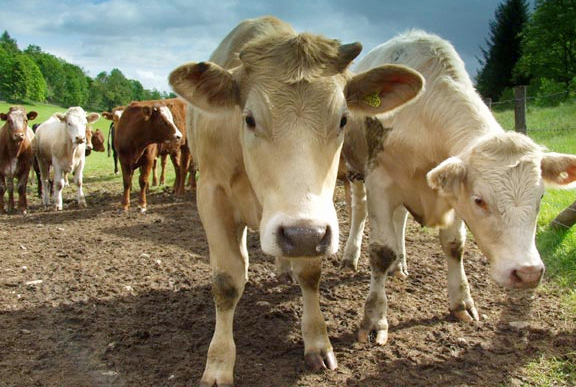
Further measures to combat TB in cattle has been announced today by Defra as Environment Secretary Elizabeth Truss said the government must continue with culling to eradicate the disease.
This comes as the European Commission endorsed the government's eradication programme by providing financial support for 2015.
A Biosecurity Action Plan is published today which sets out plans to help farmers reduce the risk of disease spread on their farms, and there will be a new service giving farmers within the badger cull areas bespoke veterinary advice on TB management.
Environment Secretary Elizabeth Truss said during the last parliament bovine TB rates in England soared to the highest in Europe and urged a 'comprehensive strategy' to be implemented which included cattle movement controls and culling.
But Dominic Dyer, CEO of the Badger Trust and Policy Advisor at Care for the Wild said: "Two months on since the end of the second year of the pilot culls in Gloucestershire and Somerset, Liz Truss must now explain why we have seen no official data on the number of badgers killed, or the results of the much heralded Independent Audit Report which she reassured MPs would prove the Government remains committed to maintaining a level of independent scrutiny of the culling operation.
"The Independent Expert Panel found that the 2013 badger culls were ineffective and failed the humaneness test with up to 18% of badgers taking up to 5 minutes to suffer long painful deaths from gunshot wounds. Without any independent monitoring for the 2014 culls we have no confidence the situation has improved and have real fears it could have got much worse. We therefore call on the Secretary of State to provide full and immediate disclosure of the results of the Independent Audit Report. Should this not be forthcoming we call on the British Veterinary Association to withdraw its continued support for the badger cull policy."
But Truss said the Chief Vet's advice is: "Results of this year’s cull in Somerset show they can be effective. That is why I am determined to continue with a comprehensive Strategy that includes culling."
"There are also plans to launch a consultation on a package of tougher cattle measures in the New Year, including statutory post-movement testing for cattle entering the Low Risk Area."
Other planned measures for next year include launching a web-based map showing locations of TB under new statutory powers introduced earlier this year and publishing disease reports for the Edge and Low Risk Areas. We have also awarded £50,000 in small grants to livestock markets to support measures to encourage cattle purchasers to give greater consideration to the TB risk of animals they are buying.
Independently audited results of the badger culls show that this year 341 badgers were removed in Somerset and 274 in Gloucestershire, with levels of humaneness and a high standard of public safety maintained. In Somerset the minimum number of badgers was exceeded. The results for Gloucestershire reflect the challenges of extensive unlawful protest and intimidation.
HSI’s Veterinary Advisor, Professor Alastair MacMillan said he disagreed with the government.
"As a veterinary surgeon with long experience of disease control and research on bovine TB, I simply disagree with Nigel Gibbens' conclusions. DEFRA's data show that the cull has failed for a second year in a row, and yet here we have the CVO advising the cull should continue despite strong evidence that it may increase the level of TB in cattle.
"Even on the basis of extremely dubious estimates of badger populations, DEFRA has failed to reach its target in one area and only just exceeded it in the other. The method of culling has not been shown to be humane in my opinion, and DEFRA's refusal to expose its data to independent analysis is an implicit admission of this. The ethics of persisting with a policy that causes animals to suffer unnecessarily and is ineffective in reducing TB in cattle must be questioned and I urge DEFRA and Nigel Gibbens to think again."
